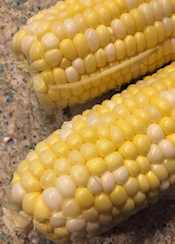|

 Agricultural engineers solve problems concerning power supplies, machine efficiency, the use of structures and facilities, pollution and environmental issues, and the storage and processing of agricultural products. They also apply their
knowledge of engineering technology and science to agriculture and the
efficient use of biological resources. Some engineers specialize in areas such as power
systems and machinery design, structural and environmental engineering, and
food and bioprocess engineering. Agricultural engineers solve problems concerning power supplies, machine efficiency, the use of structures and facilities, pollution and environmental issues, and the storage and processing of agricultural products. They also apply their
knowledge of engineering technology and science to agriculture and the
efficient use of biological resources. Some engineers specialize in areas such as power
systems and machinery design, structural and environmental engineering, and
food and bioprocess engineering.
They develop ways to
conserve soil and water and to improve the processing of agricultural
products. Agricultural engineers often work in research and development,
production, sales, or management.
Agricultural engineers work in research and development,
production, sales, or management.
|
Agricultural Engineering Resources
|
|
Online
|
|
Overview:
Overview of Agricultural Engineering
|
|
Preparation:
Admission Requirements, Coops, Accredited Programs
|
|
Day in the Life:
Teams and Coworkers, Tasks, the Workplace
|
|
Earnings:
Employer Options, Salary Ranges, Types of Employers
|
|
Employment:
Statistics, Industries, Employers
|
|
Career Path Forecast:
Predictions for the Field
|
|
Professional Organizations:
Resources, Networking, Support
|
|
Resources:
 American Society of
Agricultural and Biological Engineers American Society of
Agricultural and Biological Engineers
|
Note: Some resources in this section are provided by the US
Department of Labor, Bureau of Labor
Statistics.
|
|